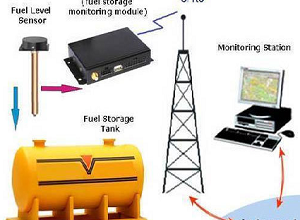Transform into a Green Logistics Business by Managing Fuel Consumption

Preserving our environment, health, and resources is each individual’s responsibility. Supply chain businesses are opting for ‘Green’ logistics to support the larger cause of saving our planet’s future. The concept aims at optimizing logistics across all touchpoints. It involves integrating technology at warehouses, transport terminals, packaging centers, material handling, transportation, and last-mile distribution.
The green logistics approach is fast, cost-effective, and reduces wastage. Fuel consumption is the main cost center for all supply chain businesses. Fuel monitoring software helps in the effective management of fuel by capitalizing on information flow.
Managing Fuel Consumption
Managing fuel consumption is crucial for your logistics business as it maximizes profitability and reduces the environmental impact of your business. You can improve the operational efficiency of your business and cut down fuel expenditure through:
1. Efficient driving techniques: Thoughtful driving improves road safety and helps you reduce fuel consumption. Train your drivers to manage speed and anticipate the road ahead. Accelerating gently, maintaining a steady speed, and slowing down instead of braking each time can help you save around 7 to 10% on fuel costs.
2. Preventive maintenance of vehicles: Prioritizing maintenance of all your vehicles optimizes the performance of your fleet. Invest in a scheduled maintenance program to ensure routine care of tires, engines, and other critical components. Improve your fuel economy by opting for the latest ‘green’ features in your vehicles like aerodynamic shape optimization, automated direct-drive transmission, and weight-saving vehicle designs.
3. Optimizing processes through technology: Leverage telematics and real-time tracking systems to streamline business operations. Monitor your inventory in the warehouse to avoid repeat trips and move it systematically through strategic route planning. Observe idling, check off-hours driving, and monitor speeding or hard accelerations through advanced telematics to reduce fuel costs.
A route optimization software can save the route history for routes taken frequently so that the driver can follow the same route and save on time and fuel. Typically, delivery schedules are created by the software to reduce the time and miles taken to complete deliveries. The result is saving of fuel.
4. Investing in Fuel Monitoring Systems: Mitigate rising fuel costs through advanced Fuel Monitoring Systems. It monitors fuel levels in real-time, tracks cost per mile, and alerts about every drain or refill. You can authorize fuel purchases to avoid fuel theft. Monitor fuel usage per trip and get detailed reports to analyze operational costs. It also allows you to detect unusual activity like harsh driving, AC misuse, or unnecessary idling by the drivers.
Benefits of Fuel Monitoring
Fuel monitoring software gives you an insight into your actual fuel consumption and wastage. You can analyze the reports and identify areas for transforming into a green logistics business by:
1. Saving costs: Fuel spends is a large value-driver of your logistics business. Using fuel monitoring software helps you reduce consumption and save costs.
2. Reducing your Carbon Footprint: Climate change is a real problem and needs immediate attention globally. You can do your part by reducing the emission of greenhouse gases (GHG) from your vehicles. Department of Energy (DOE) reports state that a vehicle emits 20 pounds of CO2 for each gallon of gasoline consumed. By reducing carbon dioxide (CO2) emissions from burning fuel, you can reduce the carbon footprint of your logistics business. Contribute to conserving the global climate by optimizing fuel consumption.
3. Conserving Fossil Fuels: There are proposals for using renewable fuels such as ethanol and biodiesel or natural gas to meet our energy needs. But most of these are still under research and haven’t yet been commercially adopted. It is advisable to use petroleum, gasoline, and diesel wisely to allow researchers time to develop large scale usage models of alternative fuels.
4. Promoting energy sustainability: Developing renewable and cleaner energy to power heavy vehicles on the highway is still cost-intensive. As you continue to use non-renewable oil derived fuel for your fleet, a fuel monitoring system reduces wastage and promotes sustainable usage.
Way Forward
Green logistics is the need of the hour, and efficient fuel monitoring software can support the cause while improving your bottom line. This sustainable approach is quickly gaining attention in the logistics industry. From large supply chain owners to 3PLs or even small fleet owners are lured by the twin-fold benefit of cutting down costs and contributing to preserving the environment. They are aligning their mainstream operations through technology to tap the benefits of green logistics.
Author:

Tushar Bhagat
Director
Uffizio India Software Pvt Ltd
Published in Telematics Wire




